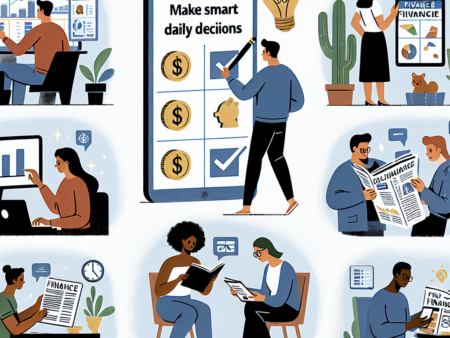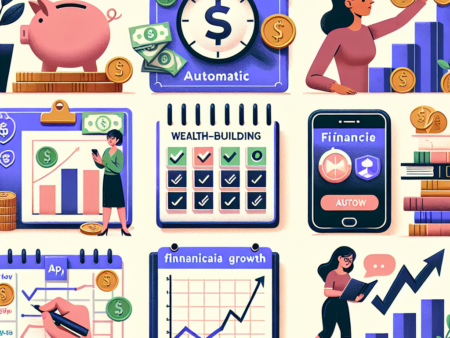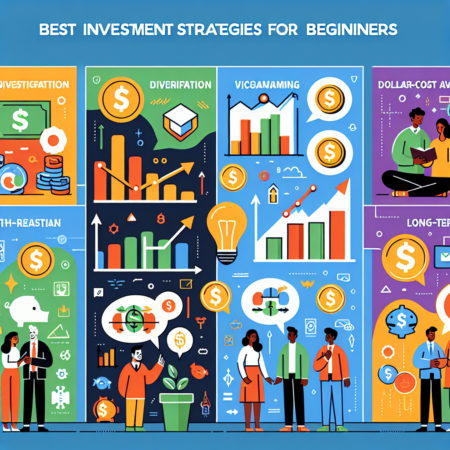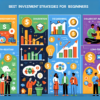Top Mobile Apps for Personal Finance in 2024
In today’s digital age, managing your finances has never been easier thanks to the plethora of mobile apps available. Whether you’re looking to budget more effectively, track your investments, or plan for retirement, there’s an app tailored to your needs. This comprehensive guide explores the top mobile apps for personal finance in 2024, helping you take control of your financial future with ease.
Why Use Mobile Apps for Personal Finance?
Mobile apps offer a convenient and efficient way to manage your finances on the go. They provide real-time insights, automated tracking, and personalized recommendations that can help you make informed financial decisions. Here are some key benefits of using personal finance apps:
- Accessibility: Access your financial data anytime, anywhere.
- Automation: Automate budgeting, bill payments, and savings.
- Insights: Gain valuable insights through data analytics and reporting.
- Security: Protect your financial information with advanced security features.
Top Mobile Apps for Budgeting
1. Mint
Mint remains a top choice for budgeting enthusiasts. It allows you to track your spending, create budgets, and set financial goals effortlessly.
- Features: Expense tracking, budget creation, bill reminders.
- Pros: User-friendly interface, comprehensive financial overview.
- Cons: Ads can be intrusive.
2. YNAB (You Need A Budget)
YNAB is ideal for those who want to take a proactive approach to budgeting. It emphasizes giving every dollar a job and helps you prioritize your spending.
- Features: Real-time budget adjustments, goal tracking, educational resources.
- Pros: Effective budgeting methodology, strong community support.
- Cons: Subscription-based service.
Investment Tracking Apps
1. Personal Capital
Personal Capital offers robust investment tracking tools, allowing you to monitor your portfolio’s performance and plan for retirement.
- Features: Portfolio analysis, retirement planner, asset allocation.
- Pros: Comprehensive investment tools, free financial dashboard.
- Cons: Additional advisory services can be costly.
2. Robinhood
Robinhood is perfect for those interested in trading and investing in stocks, ETFs, and cryptocurrencies with zero commission fees.
- Features: Commission-free trading, real-time market data, fractional shares.
- Pros: Easy-to-use interface, beginner-friendly.
- Cons: Limited research tools.
Debt Management Apps
1. Debt Payoff Planner
This app helps you create a personalized debt repayment plan, whether you’re dealing with credit card debt, student loans, or other liabilities.
- Features: Multiple repayment strategies, progress tracking, interest calculators.
- Pros: Customizable plans, motivational tools.
- Cons: Limited to debt repayment features.
2. Undebt.it
Undebt.it offers a smart interface for managing and paying off debt, supporting various repayment methods like snowball and avalanche.
- Features: Flexible repayment plans, progress charts, automatic reminders.
- Pros: Highly customizable, community support.
- Cons: Free version has limited features.
Savings and Emergency Fund Apps
1. Qapital
Qapital makes saving money fun and effortless by allowing you to set up personalized savings rules based on your spending habits.
- Features: Goal setting, automated savings rules, customizable triggers.
- Pros: Engaging interface, versatile saving options.
- Cons: Monthly fees apply for premium features.
2. Acorns
Acorns automatically invests your spare change from everyday purchases into a diversified portfolio, helping you build your savings effortlessly.
- Features: Round-up investments, diversified portfolios, retirement accounts.
- Pros: Automated investing, low minimum investment.
- Cons: Monthly subscription fees.
Security Features of Personal Finance Apps
When it comes to managing your finances, security is paramount. Most reputable personal finance apps incorporate advanced security measures to protect your data:
- Encryption: Data is encrypted both in transit and at rest.
- Two-Factor Authentication (2FA): Adds an extra layer of security to your accounts.
- Secure Servers: Utilizes secure servers to store sensitive information.
- Privacy Policies: Clear policies on data usage and sharing.
Choosing the Right Personal Finance App for You
With so many options available, selecting the right personal finance app can be overwhelming. Consider the following factors to make an informed decision:
- Features: Identify which features are most important to you, such as budgeting, investment tracking, or debt management.
- User Interface: Choose an app with a user-friendly interface that suits your preferences.
- Cost: Determine if you’re willing to pay for premium features or prefer free options.
- Security: Ensure the app has robust security measures in place.
- Compatibility: Check if the app is compatible with your devices and other financial tools you use.
Conclusion
Managing your personal finances effectively is crucial for achieving financial stability and reaching your financial goals. With the right mobile app, you can simplify budgeting, track investments, manage debt, and save more efficiently. Explore the apps mentioned in this guide to find the one that best suits your needs and take a proactive step towards securing your financial future.
Frequently Asked Questions
- What are the best mobile apps for personal finance?
- Some of the best mobile apps for personal finance include Mint, YNAB (You Need A Budget), Personal Capital, and Robinhood. These apps offer a range of features from budgeting and expense tracking to investment management.
- How can mobile apps help me manage my budget?
- Mobile apps can help you manage your budget by tracking your income and expenses, categorizing your spending, setting budget limits, and providing insights into your financial habits. This allows you to make informed decisions and stay on top of your financial goals.
- Are personal finance apps secure?
- Yes, reputable personal finance apps implement advanced security measures such as encryption, two-factor authentication, and secure servers to protect your financial data. However, it’s important to choose apps from trusted developers and regularly update your passwords.
- Can mobile apps help me save money?
- Absolutely. Many personal finance apps offer features like automated savings, goal tracking, and spending analysis, which can help you identify areas where you can cut costs and save more effectively.
- Do I need to pay for a personal finance app?
- While many personal finance apps offer free versions with basic features, some advanced functionalities may require a subscription or one-time payment. It’s important to evaluate the features you need and decide if the cost aligns with your budget and financial goals.
Disclaimer
The information provided in this article is for informational purposes only and should not be construed as financial or investment advice. It is always recommended to conduct thorough research and consult with a professional advisor before making any investment decisions.


















